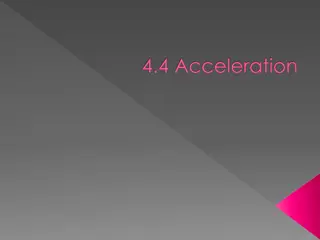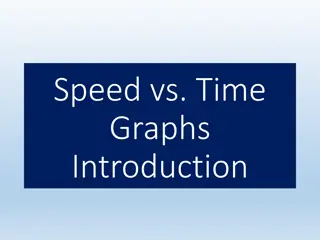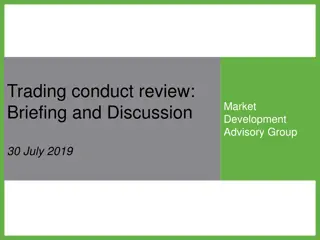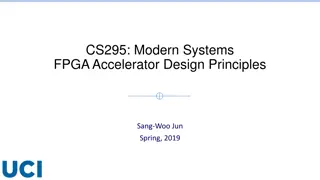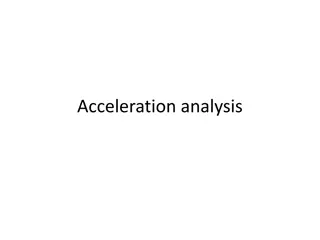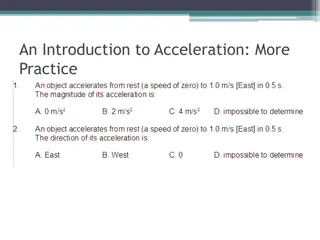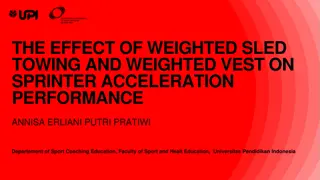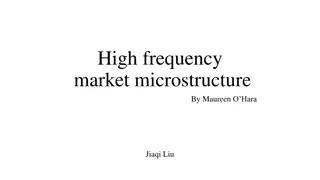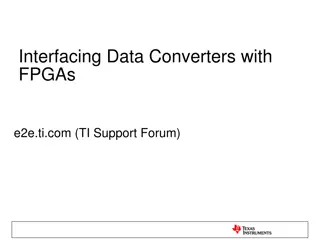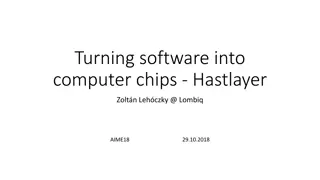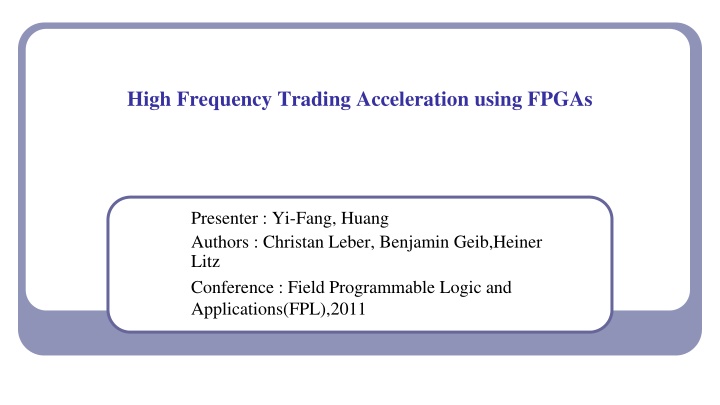
Accelerating High Frequency Trading with FPGAs - Key Insights
Explore how high frequency trading is accelerated using Field Programmable Gate Arrays (FPGAs) in this comprehensive presentation. Delve into the implementation and evaluation of this innovative approach to trading technology.
Download Presentation

Please find below an Image/Link to download the presentation.
The content on the website is provided AS IS for your information and personal use only. It may not be sold, licensed, or shared on other websites without obtaining consent from the author. If you encounter any issues during the download, it is possible that the publisher has removed the file from their server.
You are allowed to download the files provided on this website for personal or commercial use, subject to the condition that they are used lawfully. All files are the property of their respective owners.
The content on the website is provided AS IS for your information and personal use only. It may not be sold, licensed, or shared on other websites without obtaining consent from the author.
E N D
Presentation Transcript
High Frequency Trading Acceleration using FPGAs Presenter : Yi-Fang, Huang Authors : Christan Leber, Benjamin Geib,Heiner Litz Conference : Field Programmable Logic and Applications(FPL),2011
Outline Introduction Background Implementation Evaluation Conclusion National Cheng Kung University CSIE Computer & Internet Architecture Lab 2
Introduction High Frequency Trading(HFT) Sub-millisecond round-trip execution times trading Without holding any significants position end of day Trader holds stock for only 22 seconds in average High volatility and large bid-ask spreads can be turned into profits for the HFT(Arbitrage strategies) National Cheng Kung University CSIE Computer & Internet Architecture Lab 3
Outline Introduction Background Implementation Evaluation Conclusion National Cheng Kung University CSIE Computer & Internet Architecture Lab 4
Background Trading Infrastructure National Cheng Kung University CSIE Computer & Internet Architecture Lab 5
Background Protocol Stack National Cheng Kung University CSIE Computer & Internet Architecture Lab 6
Background FAST(Fix Protocol Adapted for Streaming) National Cheng Kung University CSIE Computer & Internet Architecture Lab 7
Background FAST(Fix Protocol Adapted for Streaming) National Cheng Kung University CSIE Computer & Internet Architecture Lab 8
Background FAST(Fix Protocol Adapted for Streaming) National Cheng Kung University CSIE Computer & Internet Architecture Lab 9
Background FAST(Fix Protocol Adapted for Streaming) National Cheng Kung University CSIE Computer & Internet Architecture Lab 10
Background FAST example template definition(using XML) National Cheng Kung University CSIE Computer & Internet Architecture Lab 11
Background FAST decode example Consider the following incoming binary stream: 10000111 00101010 10111111 Field1 Binary value: 00111111 Hex value: 0x63 Field2 Binary value: 00000011 10101010 Hex value: 0x03 0xAA National Cheng Kung University CSIE Computer & Internet Architecture Lab 12
Outline Introduction Background Implementation Evaluation Conclusion National Cheng Kung University CSIE Computer & Internet Architecture Lab 13
Implementation Standard NIC National Cheng Kung University CSIE Computer & Internet Architecture Lab 14
Implementation UDP offloading-using FPGA (without FAST decoding in FPGA) National Cheng Kung University CSIE Computer & Internet Architecture Lab 15
Implementation UDP offloading-using FPGA (with FAST decoding in FPGA) National Cheng Kung University CSIE Computer & Internet Architecture Lab 16
Implementation HFT Accelerator (On FPGA) FPGA:Xilinx Virtex-4 FX100 HT-core, which runs at 200MHz Parallelization :HTAX on chip network connecting the Fast Processors, This part of the design runs at a maximum frequency of 160 MHz packet decoding infrastructure connected to a Gigabit Ethernet MAC which runs at 125 MHz National Cheng Kung University CSIE Computer & Internet Architecture Lab 17
Implementation National Cheng Kung University CSIE Computer & Internet Architecture Lab 18
Outline Introduction Background Implementation Evaluation Conclusion National Cheng Kung University CSIE Computer & Internet Architecture Lab 19
Evaluation Baseline System (with Standard NIC) National Cheng Kung University CSIE Computer & Internet Architecture Lab 20
Evaluation Using FPGA (without FAST decoding in FPGA) National Cheng Kung University CSIE Computer & Internet Architecture Lab 21
Evaluation Using FPGA (with FAST decoding in FPGA) National Cheng Kung University CSIE Computer & Internet Architecture Lab 22
Outline Introduction Background Implementation Evaluation Conclusion National Cheng Kung University CSIE Computer & Internet Architecture Lab 23
Conclusion In total, this HFT acclerator in a 4 times latency reduction in respect to the standard NIC solution. The special nature of the FAST protocol which aggravates efficient parsing on a general purpose CPU makes it highly attractive to design FPGA based dedicated logic to decode it with significantly reduced latency. We have successfully shown the feasibility of this approach. National Cheng Kung University CSIE Computer & Internet Architecture Lab 24





